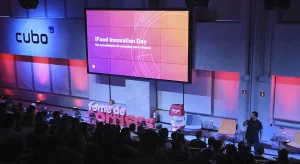Unicorn startups are appearing in some places around the world and this includes Brazil. But don't worry, we're not talking about beings from mythology and fairy tales that are shaped like horses with a horn on their forehead. These have not yet been seen.
What is growing in the world is the number of unicorn startups, which are a very rare result – hence the parallel with the mythology – of innovation and technology actions.
Therefore, you will find out here what defines a startup, what makes it a unicorn and how they are emerging and developing in Brazil.
What is Startup?
Firstly, a startup is a company in the initial phase without a well-defined business plan, which opens up a range of possibilities. In this way, the SEBRAE defines the term as a group of people working on a different, scalable idea under conditions of extreme uncertainty.
This indeterminacy of market and plan means that there is a great need to invest efforts in technology and inovation. The context for creating a startup can be to generate a completely new solution or develop and rework an existing one.
Generally, startups are put into operation as early as possible. After the business is “running”, it is necessary to reach a considerable number of customers to achieve profit without high costs for expansion.
Therefore, in the uncertain environment, it is unlikely that without risk capital a startup will be able to persist within the model. However, when it becomes scalable, the startup becomes a highly profitable company.
What is a Unicorn Startup?
What sets up a unicorn startup is achieving a great feat: being valued at 10 figures, that is, one billion dollars without having gone public on the stock exchange.
But it's such a difficult mission that, in 2013, it made venture investor and founder of Cowboy Ventures Aileen Lee coin the term for the first time. In an article published in TechCrunch about “unicorn club”, the American investor spoke about the 39 companies that, until that year, were configured as unicorn startups.
Thus, in November 2021, this number increased to 800 worldwide. Companies like Airbnb, Facebook and Google have already been on this list, but they stop being part of it when they do an IPO, that is, they go public on the stock exchange.
The main characteristic of a unicorn startup is innovation within the market niche to which they belong. Most of them invested in technology, focusing on the inevitable and increasingly frequent transformations in society, knowing how to create solutions in a digital environment.
Brazilian Unicorn Startups
According to the ABStartups (Brazilian Startups Association), there is an expectation of a balance in the number of unicorn startups in the country. The entity hopes that Brazil can increase unicorns fivefold, going from the current 21 to 100 in up to five years.
This expectation is due to the growth in demand for digital services, which were already on the rise and increased due to the pandemic. We will mention, below, some of the Brazilian unicorns, highlighting that there may be disagreements and changes in the list according to the progress of the market and startups.
- Nubank: in March 2018, Nubank revealed it had reached this level, being one of the fintechs on the list.
Fifth floor: in the real estate sector, Quinto Andar received an investment of US$ 250 million and consolidated itself as a unicorn.
iFood: Foodtech founded in 2011 was already a unicorn, from the moment it revolutionized the world of food.
Ebanx: in 2019, Ebanx appeared in the international media as a new Brazilian unicorn. This is a Brazilian fintech founded in 2012 and offers payment solutions that connect Latin American consumers to global companies.
Pay Insurance: company that was created in 2006, within UOL. In January 2018, Pag Seguro had the largest IPO of a Brazilian company in its debut on the NY stock exchange, with a value of US$ 2.6 billion.- stone: another fintech, a payments company founded in 2013 by Eduardo Pontes and André Street. After the IPO on Nasdaq, Stone became worth almost US$$ 7 billion.
Gympass: an app to be offered to employees and collaborators that facilitates access to places where they can practice activities related to physical and mental health. The company's value was estimated, in June this year, at US$ 2.2 billion after raising funds in a new round of investments.
How iFood became a Unicorn Startup
Founded in 2011 by partners Patrick Sigrist, Eduardo Baer, Guilherme Bonifácio and Feilpe Fioravante, iFood has 270 thousand partner restaurants. In addition, it carries out 60 million orders monthly and has more than 200,000 active delivery people.
In the beginning, the startup operated outside the digital world, as a printed menu guide and a telephone exchange. Today, technology solutions in the food sector operate in Brazil and Colombia through an application that connects restaurants, customers and delivery people.
In 2013, iFood was already placing almost 200,000 orders per month. The growing numbers caused Movile to invest US$ 2.5 million in the platform. A year later, the company purchased part of iFood's shares and became its majority shareholder.
But it was in 2018 that iFood gained unicorn startup status. Thus, at that time, US$ 500 million was raised by the companies Movile, Naspers and Innova Capital to improve its technology, improving the services offered by iFood.
And now, in 2021, iFood is no longer considered a unicorn startup, and has evolved into a technology company in the food sector, also called Foodtech.
Unicorn Startup in the food and technology sector
Second ugly survey by Digital Food Lab Regarding unicorn startups, a new name may soon have to be thought of, as “unicorns” are appearing faster in this sector.
But before 2012, out of 19 food startups, it took 42% more than ten years to become a unicorn. As for those that emerged after the same year, considering 14, 86% took just three years to become a unicorn.
Thus, the food technology sector has more than 10 thousand startups in operation and has been gaining favor with investors.
Thus, for Fabricio Bloisi, president of iFood, in the food sector the trend is cheaper, healthier and more practical food. “People eat around 90 times a month and, currently, delivery is present in less than 5% of this total”, concludes Bloisi, mentioning that the trend is also a significant increase in delivery.
Therefore, with increased investments in technology and delivery optimization, the food sector should grow even more. Finally, at this moment, the significant 60 million deliveries that iFood makes per month are still far from applications in China that can make up to 30 million per day.


